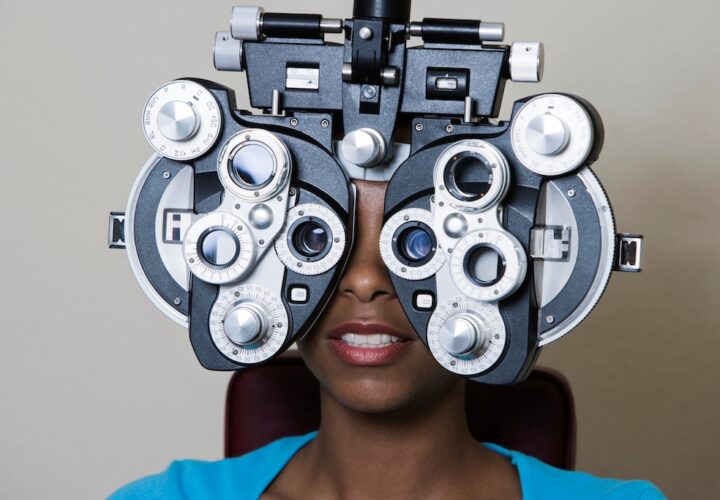Scientists are continuing to search for answers to Alzheimer’s disease and other dementias, targeting beta-amyloid and tau protein, inflammation, and genetic factors in research on potential therapies. But more and more, doctors are turning to something quite simple and straightforward as part of the answer to dementia — staying active.
Could keeping a busy schedule help to stave off dementia? A new study out of the University of California San Francisco (UCSF) Memory and Aging Center finds that maintaining an active lifestyle — both physically and mentally — can slow down the development of frontotemporal dementia (FTD); even among people who are genetically predisposed to develop it.
What is Frontotemporal Dementia?
Dementia is an umbrella term for a variety of different types of diseases. Frontotemporal dementia, or FTD, is one type of dementia that affects a person’s personality, language, movement, and decision-making. It mostly impacts the frontal lobes of the brain, which are crucial in certain functions, like keeping information together and regulating emotion and behavior. This is different from Alzheimer’s disease, which tends to damage the hippocampal region of the brain, and is mostly associated with memory.
FTD begins a little earlier than other types of dementia like Alzheimer’s, typically showing symptoms as early as age 45, and is most common in people under the age of 65. In some rare cases, people can be diagnosed as early as their 20s.
Active Lifestyle Vs Genetics
The idea of “nature vs nurture” is a common topic in medicine. Is it someone’s genes or their poor lifestyle habits that contribute to their eventual development of dementia or other chronic diseases?
For people who are genetically predisposed to FTD, it’s almost certain that they’ll eventually develop it if they live long enough, says Kaitlin Casaletto, assistant professor of neurology at UCSF and an author of the study.
In an interview with Being Patient, Casaletto said she and her team became interested to see if lifestyle interventions could delay the onset of FTD — even among people with the predisposed gene.
“There’s been decades of animal research showing that the environments we put our brains in are really important for how our brains develop,” she said. “This ignited the idea that you can use the environment and lifestyle choices to shape our brains. We were really interested in finding out if this was true for people with FTD.”
The researchers focused on a group of people who carried the gene for the autosomal dominant form of FTD.
“We were trying to understand in this really high risk group of people for dementia, does lifestyle make a difference, or are they on this predestined trajectory for dementia?” Casaletto continued.
Taking Brain Health into Your Own Hands
The 105 participants with dominant genetic mutations were almost all in the early stages of the disease, showing either no symptoms or early-stage ones. The researchers used MRI scans to measure brain degeneration and had participants take thinking and memory tests.
The participants also self-reported their daily levels of mental and physical activity — things like reading, writing, spending time with friends, walking, running, or biking. The researchers also took information from the participants’ family members, who reported how well their loved one was functioning with daily tasks like finances, medications and hygiene.
There was a pretty clear difference between people who reported more activity than others. The results showed that functional decline among the most active people was 55 percent slower than the least active participants.
“This was a remarkable effect to see so early on,” Casaletto said in a news release. “If this were a drug, we would be giving it to all of our patients.”
While activity showed positive results when it came to people functioning in their daily lives, it didn’t necessarily stop the physical changes of degeneration associated with the disease. There was still deterioration of brain tissue from FTD a year later. Still, even among participants with brain atrophy from FTD, those who were the most mentally and/or physically active scored better on cognitive tests — up to 50 percent better than those who weren’t active.
As for the underlying biological mechanism that activity triggers to protect the brain, Casaletto says it’s still unclear — but there are a few ideas behind the connection.
“We don’t really understand the biology fully in humans, but we know that exercise is linked to more grey matter in the brain,” Casaletto said. “There’s been some research about an immune mechanism due to physical activity. Mostly in animal models, it’s been shown that exercise causes a release of growth factors in the brain, so this sort of develops the synapses between the brain cells in a more complex way. There also might be more clearance of cellular debris due to exercise, where the brain is able to flush out things that aggregate in the brain over a day or so.”
The other factor, Casaletto says, may involve the vascular system and cardiovascular health. Researchers already know that things like high blood pressure, type 2 diabetes, and obesity are linked to an increased risk of dementia.
“Obviously we know that physical activity is good for the heart and vascular, and this may be a very potent way for the brain to get all the oxygen and nutrients that it needs,” said Casaletto.
More research will be needed to figure out the biological mechanisms — and to understand how to apply them to potential therapies. In the meantime, Casaletto says that anyone who is predisposed to developing dementia may find benefits in maintaining an active lifestyle — whether cognitively or physically. The ideal situation would be to do a mix of both.
You don’t have to be an elite athlete or academic to stay active. Sometimes all it takes is a daily walking or jogging routine, planned social events throughout your week, and challenging your brain cognitively — by learning a new language, reading a new book, or pushing yourself to spend time with people you don’t see often.
“I think this is a really exciting time, because I think people are more in charge of their brain health than previously believed, even if you’re at a higher genetic risk — that’s what all these lifestyle studies are leading to,” Casaletto said.






In 2018, India was declared the world’s most depressed country, with a staggering 6.5% of its population dealing with serious mental health conditions.
Despite this disturbing figure, the majority of Indian parents do not accept mental illness as a credible health concern, confirming the social stigma around it.
Dementia can affect children too. Your mental health is important as much as your physical health.
So Talk to your children. Listen to them.